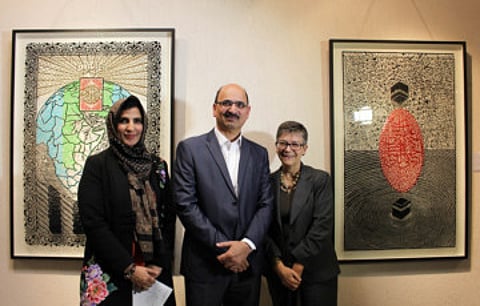Gilgit-Baltistan protests called-off after two weeks
Govt to hold further meetings to resolve issues

Islamabad: The two-week protest in freezing weather by thousands of people of Gilgit-Baltistan against taxes was called off on Friday evening following a notification by the government to halt tax collection.
According to the notification, the Department of Inland Revenue Gilgit-Baltistan (GB) and all withholding tax agents have been directed not to collect tax until amendments have been made in the Income Adaptation Act, 2012 by Gilgit-Baltistan Council.
The business community of GB, backed by various religious and political parties, continued to protest in all 10 districts of GB, the biggest one in Skardu, for two weeks for taxes levied on them without giving constitutional rights to the region. Markets and business centres remained closed during the two-week protest in almost all 10 districts, while public transport remained off the main roads.
“We are calling off the protest for now after the Government directive to halt the tax collection as it was one of our major demands” Fida Hussain, vice-chairman Awami Action Committee, told Gulf News in a telephone interview from Gilgit.
“But the government notification is ambiguous. It refers to tax break until amendment in the act which means that the taxes might be reintroduced any time soon,” Hussain explained his concern.
The government has decided to hold further dialogues with the community leaders of GB to resolve their issues and avoid future protests.
However, the issue goes beyond taxation. “One of our major concerns is peace and stability in the region with [the] provision of basic rights to the people of Gilgit-Baltistan” Hussain added.
Talking to Gulf News, Altaf Ahmad, a student of the Karakoram International University, said: “GB is strategically Pakistan’s most important region but people do not enjoy all constitutional rights and fundamental liberties.”
The protesters highlighted the slogan, “No taxation without representation”, saying that federal government cannot levy direct taxes in the region since they are not represented in the national legislative bodies.
“First decide our constitutional position and then impose any tax being levied in other provinces,” said Nisar Hussain Raki, president of the GB Chamber of Commerce and Industry, adding that it was unconstitutional to impose taxes when no benefit was being derived from it by locals.
The two-week protest in the region was organised by GB Central Traders Association, Awami Action Committee, GB Chamber of Commerce and Industry, transporters’ association and opposition parties — Pakistan Tehreek-i-Insaf, Pakistan Peoples Party, Islami Tehreek Pakistan, Majlis Wahdatul Muslimeen and Jamiat Ulema-i-Islam-Fazl. Supreme Court Bar Association, High Court Bar Association, Hotels Association, Petroleum Dealers Association, Transport Association, Timber Association and Minerals and Gems Association also imposed the imposition of taxes in GB.
According to Shabbir Mir, a senior journalist based in Gilgit, people of the region have been paying indirect taxes for decades. “It was the Pakistan Peoples Party (PPP) that first introduced direct taxation in 2012 through an act called the Gilgit-Baltistan Council Income Tax (Adaptation) Act of 2012”, which the current government of Pakistan Muslim League-Nawaz (PML-N) decided to increase to stem benefits out of the investments that are likely to make its way once the China-Pakistan Economic Corridor (CPEC) is functional, he explained.



